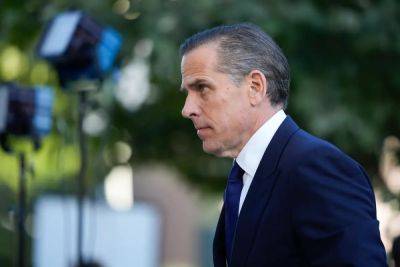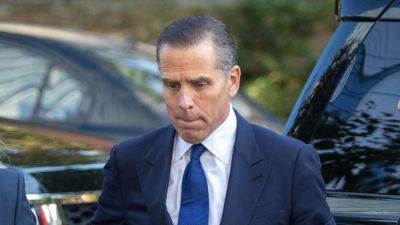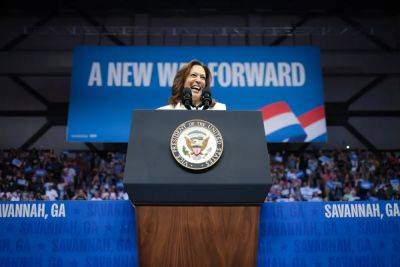Before Hunter Biden’s guilty plea, he wanted to enter an Alford plea. What is it?
Hunter Biden’s sudden guilty plea Thursday to tax charges was preceded by vigorous objections from prosecutors when his lawyer said he was willing to give up a trial and enter what’s known as an Alford plea.
The surprise took place in federal court in Los Angeles, where more than 100 potential jurors had been summoned for questioning. President Joe Biden’s son ultimately pleaded guilty to nine charges in the case accusing him of failing to pay at least $1.4 million in taxes over four years.
Before the guilty plea, Hunter Biden’s attorney said he would like to make an Alford plea and forgo a trial.
“This can be resolved today,” Abbe Lowell told the judge.
Prosecutors, however, objected, and the judge took a break.
<bsp-custom-headline custom-headline=«div»> READ MORE </bsp-custom-headline> <bsp-custom-headline custom-headline=«div»> Hunter Biden enters surprise guilty plea to avoid tax trial months after his gun conviction </bsp-custom-headline>What is an Alford plea?
The Alford plea is named after a 1970 U.S. Supreme Court case involving Henry Alford of North Carolina, who pleaded guilty to second-degree murder to avoid the death penalty but still said he was innocent. The Supreme Court said there was no constitutional violation.
The Justice Department says an Alford plea is when someone “maintains his or her innocence with respect to the charge to which he or she offers to plead guilty.”
Federal prosecutors may not consent to an Alford plea “except in the most unusual of circumstances” and only with approval from senior officials in Washington, a Justice Department manual says.
“I want to make something crystal clear, and that is the United States opposes an Alford plea,” prosecutor Leo Wise said in court. “Hunter Biden is not







